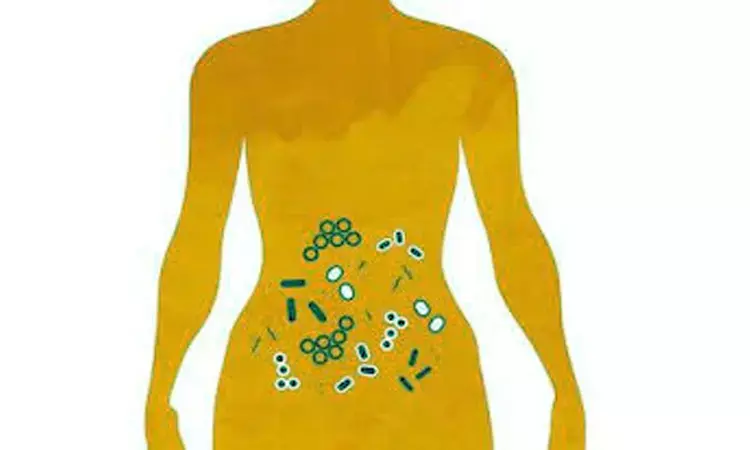- Home
- Medical news & Guidelines
- Anesthesiology
- Cardiology and CTVS
- Critical Care
- Dentistry
- Dermatology
- Diabetes and Endocrinology
- ENT
- Gastroenterology
- Medicine
- Nephrology
- Neurology
- Obstretics-Gynaecology
- Oncology
- Ophthalmology
- Orthopaedics
- Pediatrics-Neonatology
- Psychiatry
- Pulmonology
- Radiology
- Surgery
- Urology
- Laboratory Medicine
- Diet
- Nursing
- Paramedical
- Physiotherapy
- Health news
- Fact Check
- Bone Health Fact Check
- Brain Health Fact Check
- Cancer Related Fact Check
- Child Care Fact Check
- Dental and oral health fact check
- Diabetes and metabolic health fact check
- Diet and Nutrition Fact Check
- Eye and ENT Care Fact Check
- Fitness fact check
- Gut health fact check
- Heart health fact check
- Kidney health fact check
- Medical education fact check
- Men's health fact check
- Respiratory fact check
- Skin and hair care fact check
- Vaccine and Immunization fact check
- Women's health fact check
- AYUSH
- State News
- Andaman and Nicobar Islands
- Andhra Pradesh
- Arunachal Pradesh
- Assam
- Bihar
- Chandigarh
- Chattisgarh
- Dadra and Nagar Haveli
- Daman and Diu
- Delhi
- Goa
- Gujarat
- Haryana
- Himachal Pradesh
- Jammu & Kashmir
- Jharkhand
- Karnataka
- Kerala
- Ladakh
- Lakshadweep
- Madhya Pradesh
- Maharashtra
- Manipur
- Meghalaya
- Mizoram
- Nagaland
- Odisha
- Puducherry
- Punjab
- Rajasthan
- Sikkim
- Tamil Nadu
- Telangana
- Tripura
- Uttar Pradesh
- Uttrakhand
- West Bengal
- Medical Education
- Industry
Serotonin may protect against Gastrointestinal infections: Study

DALLAS – UT Southwestern scientists have found that serotonin, a chemical known for its role in producing feelings of well-being and happiness in the brain, can reduce the ability of some intestinal pathogens to cause deadly infections.
The new research has been published in the journal Cell Host & Microbe.
Although the vast majority of research on serotonin has centered on its effects in the brain, about 90 percent of this neurotransmitter – a chemical that nerve cells use to communicate with each other – is produced in the gastrointestinal tract, explains study leader Vanessa Sperandio, Ph.D., a professor of microbiology and biochemistry at UT Southwestern Medical Center. In humans, trillions of bacteria live within this space. Most of these gut bacteria are beneficial, but pathogenic bacteria can also colonize the gastrointestinal tract, causing serious and potentially fatal infections.
Because gut bacteria are significantly affected by their environment, Sperandio, along with UTSW doctoral student Aman Kumar, laboratory manager Regan Russell, and their colleagues, wondered whether the serotonin produced in the gut can affect the virulence of pathogenic bacteria that infect the gastrointestinal tract.
The researchers worked with Escherichia coli O157, a species of bacteria that causes periodic outbreaks of often deadly foodborne infection. The team grew these pathogenic bacteria in petri dishes in the lab, then exposed them to serotonin. Gene expression tests showed that serotonin significantly reduced the expression of a group of genes that these bacteria use to cause infections. Additional experiments using human cells showed that the bacteria could no longer cause infection-associated lesions on the cells if these bacteria were exposed to serotonin.
Next, the researchers examined how serotonin affected virulence in living hosts. Using mice, the researchers studied how serotonin might change the ability for Citrobacter rodentium – a mouse gut bacterium often used as an analog for E. coli in humans – to infect and sicken their hosts. These mice were genetically modified to either over- or underproduce serotonin in their gastrointestinal tracts. Those that overproduced this neurotransmitter were less likely to become colonized by C. rodentium after being exposed to this bacterium or had relatively minor courses of illness. Treating mice with fluoxetine (sold under the brand name Prozac) to increase serotonin levels prevented them from getting sick from C. rodentium exposure. However, the mice that underproduced serotonin became much sicker after bacterial exposure, often dying from their illness.
Further experiments identified the receptor for serotonin on the surfaces of both E. coli and C. rodentium, a protein known as CpxA. Because many species of gut bacteria also have CpxA, it's possible that serotonin could have wide-ranging effects on gut bacterial health, Sperandio says.
In the future, she adds, she and her colleagues plan to study the feasibility of manipulating serotonin levels as a way of fighting bacterial infections in the gastrointestinal tract. Currently, few available antibiotics can effectively fight E. coli O157 – some antibiotics actually worsen the consequences of infection, causing the bacteria to release more damaging toxins.
"Treating bacterial infections, especially in the gut, can be very difficult," Sperandio says. "If we could repurpose Prozac or other drugs in the same class, it could give us a new weapon to fight these challenging infections."
Other researchers who contributed to this study include Reed Pifer, Zelia Menezes-Garcia, Santiago Cuesta, and John B. MacMillan, all of UTSW, and Sanjeev Narayanan of Kansas State University.
Hina Zahid Joined Medical Dialogue in 2017 with a passion to work as a Reporter. She coordinates with various national and international journals and association and covers all the stories related to Medical guidelines, Medical Journals, rare medical surgeries as well as all the updates in the medical field. Email: editorial@medicaldialogues.in. Contact no. 011-43720751
Dr Kamal Kant Kohli-MBBS, DTCD- a chest specialist with more than 30 years of practice and a flair for writing clinical articles, Dr Kamal Kant Kohli joined Medical Dialogues as a Chief Editor of Medical News. Besides writing articles, as an editor, he proofreads and verifies all the medical content published on Medical Dialogues including those coming from journals, studies,medical conferences,guidelines etc. Email: drkohli@medicaldialogues.in. Contact no. 011-43720751


